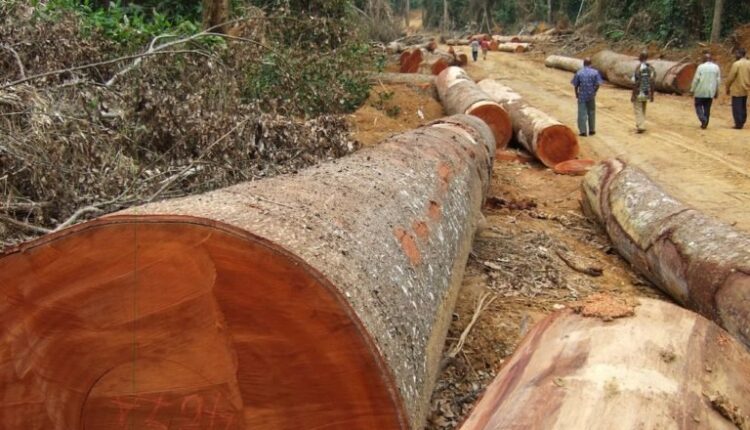Ghana’s rainforest is being lost at an alarming rate, according to a new report about the state of forests worldwide.
Global Forest Watch (GFW) used updated remote sensing and satellite data from the University of Maryland and estimates that there was a 60% increase in Ghana’s primary rainforest loss in 2018 compared to 2017, the highest in the world. The second highest was neighboring Côte d’Ivoire with a 28% increase. Together, these two countries produce nearly 60% of the world’s cocoa.
However, the Democratic Republic of Congo lost the largest size of tropical primary rainforest in Africa and collectively, the world lost 3.6 million hectares of primary rainforest last year—an area the size of Belgium in 2018 alone.
The researchers said in 2002, just Brazil and Indonesia accounted for 71% of the tropical primary forest loss. Though those two countries accounted for 46% of total loss in 2018, loss rates in Africa in particular saw a significant increase.
Besides providing habitat for animals including mountain gorillas, trees in rainforests can be “hundreds or even thousands of years old. They store more carbon than other forests and are irreplaceable when it comes to sustaining biodiversity,” says the World Resources Institute which leads the GFW project.
For decades, Ghana was one of the leading timber exporters in the world but its forest cover has shrunk significantly over the years leaving timber processors in the country contemplating the importation of lumber from neighboring countries and South America.
In a 2016 report [pdf p.3], the Forestry Commission, a government agency, said nearly 80% of Ghana’s forest resources under state management had been lost to illegal logging activity since 1990.
While clearing for cocoa farming is a leading cause of deforestation, mining is the biggest threat. Illegal small scale mining, known locally as “galamsey”, has caused massive environmental damage which the government estimates would cost $29 billion to help restore.
A ban imposed on all small scale mining activities has now been lifted while an inter-agency committee charged with overseeing adherence to environmental standards has been embroiled in a corruption scandal.
The government itself has also come in for criticism. As Quartz Africahas previously reported, local environmentalists fear the 23,000-hectare Atewa Forest Reserve in Ghana’s Eastern Region, will be under threat of deforestation after the government agreed to a $2 billion deal with China to exchange bauxite for infrastructure projects, in the first of many similar ‘resource for roads’ deals to come.
Bauxite mining is especially damaging to forests and has been linked to deforestation in Jamaica, one of the world’s largest bauxite producers.
- Major Ghana Cocoa Region 81% Infected with Bean Disease - July 22, 2024
- Ghana to Delay More Cocoa Deliveries as Supply Crisis Worsens - June 12, 2024
- Cocoa Production Helping Mitigate Climate Change Impact - June 10, 2024
